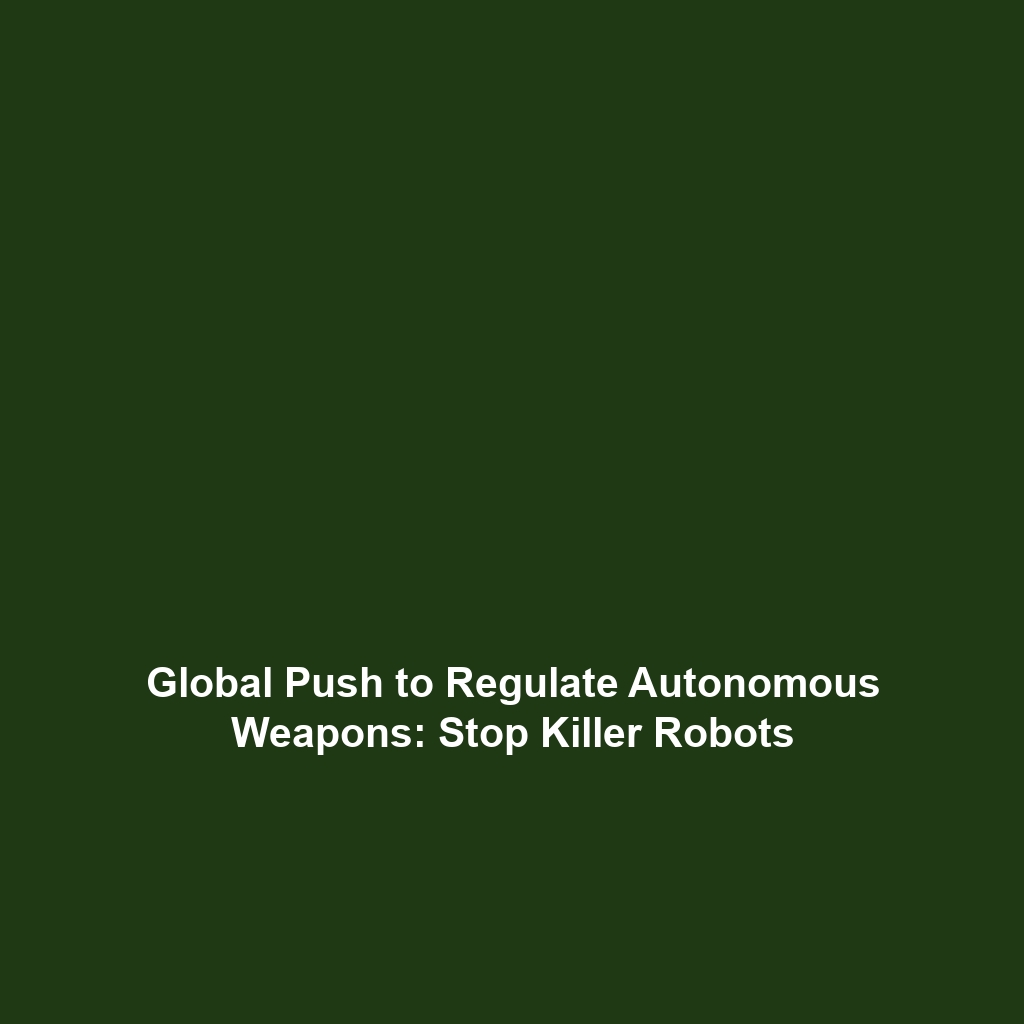International Efforts to Ban or Regulate Autonomous Weapons: A Look at AI Ethics
The development of autonomous weapons has raised significant ethical concerns globally. As nations invest in advanced military technologies, international efforts to ban or regulate autonomous weapons, such as the Campaign to Stop Killer Robots, have gained momentum. These initiatives address the urgent need for a coordinated response to the ethical implications posed by AI in warfare, emphasizing the intersection of artificial intelligence and human rights. This article delves into the ongoing campaigns, their significance, and the broader implications for AI Ethics.
Key Concepts in International Efforts
Understanding the major principles surrounding the movement to regulate autonomous weapons is crucial. Here are some key concepts:
- Autonomous Weapons Systems (AWS): Weapons that can select and engage targets without human intervention.
- Campaign to Stop Killer Robots: A coalition of NGOs advocating for a preemptive ban on fully autonomous weapons.
- Human Oversight: The principle that human judgment must play a role in lethal decisions to ensure accountability and ethical compliance.
These concepts fit into the broader category of AI Ethics by highlighting the moral duty to oversee the deployment of such technologies, weighing their potential benefits against the ethical risks they pose.
Applications and Real-World Uses
The initiatives to regulate autonomous weapons have various real-world implications. For example:
- Military Policy Reformation: Countries are reevaluating their military strategies to integrate ethical guidelines for the use of AI.
- International Treaties: Efforts are underway to draft treaties that specifically address the use of autonomous systems.
- Public Awareness Campaigns: NGOs and advocacy groups are actively educating the public on the risks associated with autonomous weapons.
This reflects how international efforts to ban or regulate autonomous weapons notably influence the framework of AI Ethics.
Current Challenges
Despite the momentum, several challenges persist in studying and applying these global efforts:
- Jurisdictional Issues: Different countries have varying levels of commitment to AI ethics and regulation.
- Technological Advancement: Rapid development in AI outpaces regulatory efforts.
- Lack of Consensus: Divergent opinions on how to classify and regulate autonomous weapons persist among nations.
These challenges underscore the complexities involved in the challenges of regulating autonomous weapons within the field of AI Ethics.
Future Research and Innovations
Researchers are exploring new avenues to address the ethical dilemmas surrounding autonomous weapons:
- Ethical AI Research: Studies are focusing on frameworks that could embed ethical considerations at the design stage of AI systems.
- Policy Development: Upcoming research aims to create more concrete policy recommendations that can be implemented globally.
- Technological Breakthroughs: Innovations in AI transparency and accountability mechanisms are being developed.
These innovations may pave the way for a future where international efforts to regulate autonomous weapons align more closely with the evolving field of AI Ethics.
Conclusion
In summary, the Campaign to Stop Killer Robots and other international efforts to ban or regulate autonomous weapons highlight the critical need for discourse around AI Ethics. As the debate progresses, it is essential for policymakers and the public to engage in ongoing discussions to ensure that the deployment of AI technologies aligns with ethical standards. To stay informed on this dynamic field, consider reading more on related topics such as AI Ethics and Autonomous Weapons.
